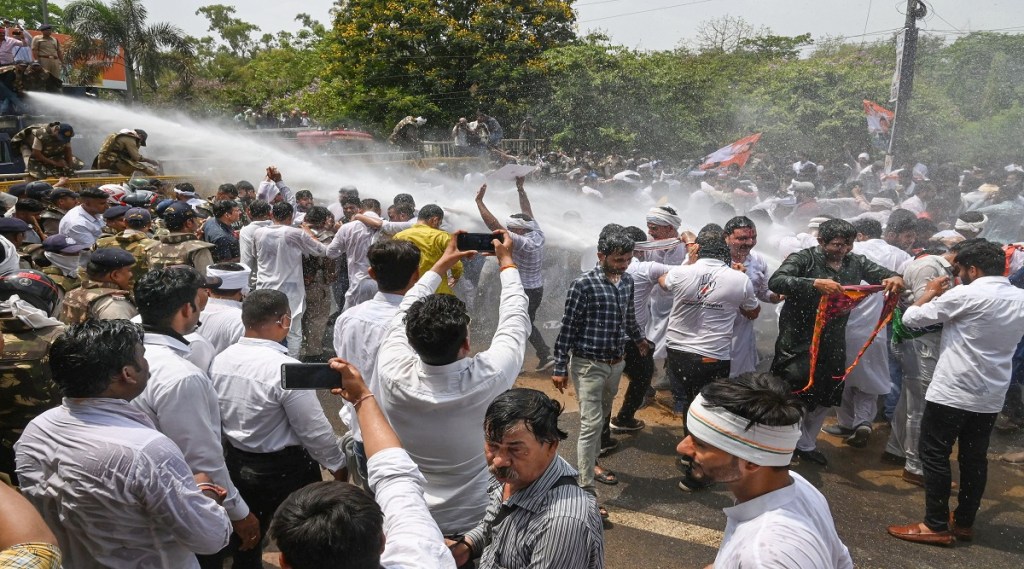I can scarcely believe that 31 years have rolled by since the bugle was first sounded on a change of economic policy: devaluation of the rupee on July 1, 1991. It was a dramatic move, disruptive, and was vehemently denounced. The Opposition was so strident that P V Narasimha Rao wanted to put on hold the next step. Dr Manmohan Singh pretended to carry out the PM’s wish to “hold back”, Dr C Rangarajan, the Deputy Governor of RBI was “unavailable”, and the bugle was sounded again by announcing a further devaluation in 48 hours! It was a two-step dance that was choreographed in advance and performed with great skill.
What followed can be summed up in two words: pure courage. In quick succession, the government announced trade policy reforms, the new industrial policy and a path-breaking budget. The world sat up and took notice of the courage, clarity and speed of the government. The elephant had begun its dance.
Affirm Open Market Economy
In the last 30 years since a Congress-led government ushered in the era of liberalisation, the country has reaped enormous benefits in terms of wealth creation, new businesses, new entrepreneurs, a huge middle class, millions of jobs, exports, and lifting 270 million out of poverty. Yet, without doubt, a significant number live in extreme poverty. There is hunger, as witnessed by India’s rank of 101 (out of 116 countries) in the Global Hunger Index 2021. There is widespread malnutrition affecting women and children, as revealed by the National Family Health Survey-5. There are poor learning outcomes as revealed by the Annual Status of Education Reports. There is massive unemployment. There is, periodically, high inflation. There are rising inequalities of income, wealth and gender. There are stark regional inequalities. Many sections of the people are denied a fair and equal opportunity.




We cannot depart from the path of an open, liberal and market-based economy. That would be suicidal. Yet, we must take stock and, considering the global and domestic developments, re-set our economic policies. That requires the courage, clarity and speed of 1991.
Global, Domestic Developments
Consider the global developments. Rich nations have become richer and the gap, for example, between China and India has widened. China’s nominal GDP in 2022 will be USD 16.7 trillion and India’s will be USD 3 trillion. Digital technology will invade every aspect of human life. Data will be the new wealth. Automation, robotics, machine learning and artificial intelligence will rule the world and the role of humans will be re-defined. 5G, Internet 3.0, blockchain, metaverse and unknowns will define the spaces in the new world. Climate change will leave its consequences and the human race will struggle to cope with them. We will run out of fossil fuels and will be forced to augment renewable sources of clean energy to sustain life on this planet.
Consider the domestic developments. The Total Fertility Rate (TFR) has declined to 2.0 which is below the replacement rate. The proportion of the population below the age of 15 has fallen from 28.6 per cent in 2015-16 to 26.5 per cent in 2019-21. This marks the beginning of the end of the demographic dividend. The average farmer produces more and yet his station in life hasn’t changed. He/she believes farming is not viable and their children do not want to take up farming. There is rapid urbanization and the urban unemployment rate is climbing. Digitization is expanding; so is the digital divide between the poor and the middle class/rich. Majoritarianism is seeping into public discourse and the politics of polarization and hate will take a toll on the economy. No nation can become an economic power if 20 per cent of the population is excluded from the political and economic structures of the country.
Exclusion is self-defeating
The case for a re-set is compelling. The country will not accept jobless growth, much less the job-loss growth of the last few years. The cornerstone of growth must be ‘jobs’, everything else will flow from the creation of jobs. From the lofty promise of creating 2 crore jobs a year to the pathetic argument that ‘selling pakoras’ is a job, the Modi government has let down hardworking families that had invested everything in educating their children and now face a situation of no jobs. The Modi government may be able to get away, temporarily, with the seductive appeal of Hindutva but soon the youth will realize that Hindutva (and a polarized and divided society) will not bring jobs to any one whether he/she is a Hindu, Muslim, Christian, Sikh or belonging to any other faith or an atheist.
This discussion leads us, inevitably, to the altered balance in Centre-State relations. Never before have these relations been so fraught; never before have the finances of states been so fragile. The States’ Own Resources have dwindled. There is growing disenchantment with GST, thanks to the way it is being administered. There is a complete breakdown of trust between the Centre and the states. There is even talk of GSTexit, a la Brexit. The Centre has encroached on the legislative domain of the states and is using its executive and financial powers to force the states to meekly submit. Not only the Modi government’s policies but the path it has chosen will lead to the destruction of federalism.


















